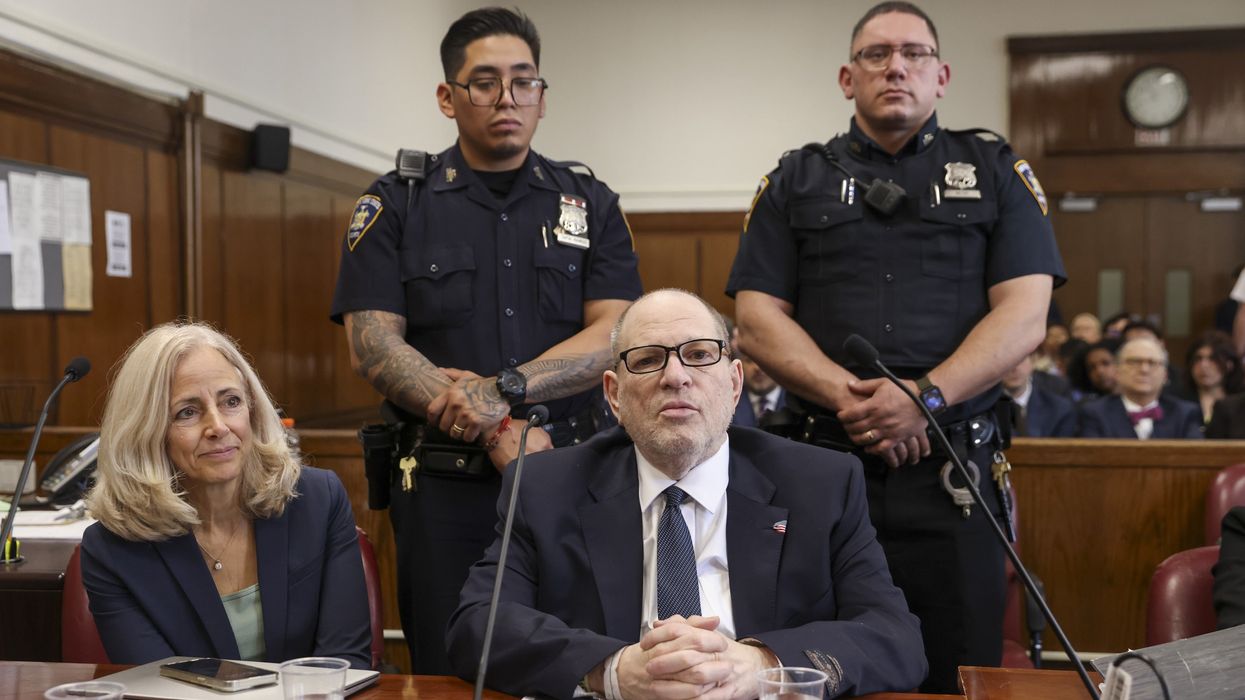The retrial of former Hollywood producer Harvey Weinstein began in New York on Tuesday, after his 2020 rape conviction was overturned by the state’s Court of Appeals. Weinstein, 72, is being re-tried on charges of rape and sexual assault, which originally led to a 23-year prison sentence. He has pleaded not guilty.
The original conviction was quashed on grounds that the trial court allowed testimony from women whose allegations were not directly tied to the charges, which the appeals court ruled deprived Weinstein of a fair trial.
In this retrial, three women’s claims form the core of the prosecution’s case: Miriam Haley, Jessica Mann, and Kaja Sokola. Haley and Mann both testified during the original trial. Sokola, a Polish-born former model and psychologist, did not.
Prosecutor Shannon Lucey told the court that Weinstein used his influence in the film industry to exert a “profoundly psychological and physical hold” over aspiring actresses. “He was the Hollywood gatekeeper,” she said, alleging that the women kept their pain private out of fear and shame. Lucey added that Weinstein “held unfettered power for over 30 years in that industry.”
Lucey said Weinstein’s power ended when the New York Times published an exposé in October 2017, detailing years of sexual abuse allegations. “The #MeToo movement began because of the bravery of the women who came forward,” she said.
Lucey provided specific details of the three women’s accounts.
Jessica Mann, an actress, met Weinstein in 2012. Lucey recounted an incident in March 2013 in which Weinstein allegedly used a false name to book a hotel room and pushed Mann inside, where he raped her. Lucey quoted Weinstein allegedly telling her afterwards: “I just couldn’t help myself.”
Kaja Sokola alleges that in 2006, at the age of 16, she was taken to what she thought would be a business meeting with Weinstein. Instead, he allegedly forced her into a private apartment where he sexually assaulted her. “She said ‘please don’t do this’ over and over again,” Lucey told the jury. Weinstein reportedly replied: “See, that wasn’t so bad.”
Miriam Haley, a former production assistant, also gave testimony during the 2020 trial. She has chosen not to testify again. Lucey explained that Haley was awarded $475,000 in a civil settlement, which included a release of any liability. “She is traumatised,” Lucey said. “She is afraid and paranoid about the defendant’s power.”
Weinstein’s lawyer, Arthur Aidala, began his defence by stating that the case “is going to fall flat on its face.” He argued that the encounters were consensual and that the women remained in contact with Weinstein because they sought career advancement. “They believed he could get them into the room they wanted to be in,” he said.
Aidala referred to the alleged victims as “friends with benefits” and said “the casting couch is not a crime scene.” He acknowledged Weinstein’s infidelities but described them as “immoral” rather than criminal, stating “it was wrong on both ends.”
Throughout his opening statement, Aidala attempted to cast doubt on the credibility of the accusers. He argued that Sokola is “troubled” and has “a lot of problems.” He noted that she later sent kind messages to Weinstein.
Aidala also referred to high-profile women’s rights lawyer Gloria Allred, who is attending the trial. Allred has represented multiple accusers of Weinstein, including Haley. Aidala claimed Allred is “known for suing celebs” and accused the women of lying for financial gain.
“Many of these women continued to see Harvey after the alleged assaults,” Aidala said. “She’s taking her rapist to have lunch.”
The defence emphasised that some accusers did not immediately tell friends or agents about the incidents. Aidala referenced Jessica Mann, saying she did not report the alleged rape to her friend and agent who were waiting for her downstairs just minutes later.
Jurors listened intently to both sides during the opening statements, which lasted around two hours. Courtroom sketches depicted Weinstein observing from his wheelchair, with prosecutor Lucey and Justice Curtis Farber also drawn by courtroom artist Jane Rosenberg.
Weinstein remains imprisoned on a separate conviction from a Los Angeles trial, where he was sentenced to 16 years for raping an Italian actress in 2013. He has denied all allegations and continues to maintain his innocence.
The retrial is expected to last several weeks.





